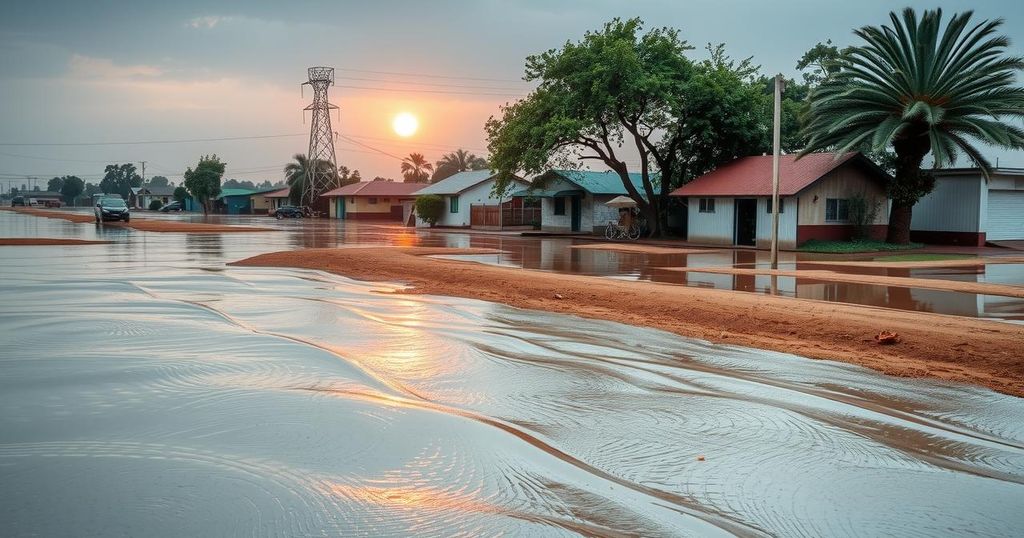Climate Change Projected to Intensify Flooding Events in the Sahel
A recent study reveals that climate change could lead to increased intensity and frequency of extreme flooding in the Sahel due to enhanced activity of African easterly waves (AEWs). This amplification is linked to changes in temperature gradients and supports monsoon flows, suggesting significant implications for future hydroclimate conditions and Saharan dust transport.
A recent study highlights the projected increase in the intensity and frequency of extreme flooding events in the Sahel region due to climate change. Researchers examined alterations in African easterly waves (AEWs), which play a crucial role in transporting Saharan dust and driving mesoscale convective systems (MCSs) that lead to substantial rainfall in drought-prone areas of northern Africa. The findings indicate that, by the end of the 21st century, AEWs over the Sahel-Sahara region could intensify considerably under scenarios of elevated greenhouse gas emissions. This amplifying activity is attributed to an increase in baroclinicity resulting from a strengthened temperature gradient between the Sahara and the Guinea Coast, alongside warming trends that enhance monsoon flows. Consequently, this could lead to more significant flooding events in a warming climate, while also affecting dust transport dynamics vital for weather patterns and tropical cyclone formation.
African easterly waves (AEWs) are significant atmospheric phenomena that influence weather patterns across northern Africa, particularly during the West African monsoon. These systems are responsible for rainfall distribution and are vital in the transportation of Saharan dust, which can travel across the Atlantic Ocean, affecting weather systems globally. Understanding how climate change impacts AEWs is critical to predicting future hydroclimate interactions, particularly in regions already susceptible to drought and extreme weather events. This research provides insights into the potential exacerbation of flooding in the Sahel as global temperatures rise.
The study concludes that climate change is likely to intensify AEWs, resulting in increased flooding events in the Sahel region and changes in dust transport patterns. Such alterations pose significant risks for agriculture and water management in this vulnerable area, necessitating proactive strategies to mitigate the impacts of severe weather events exacerbated by global warming. These findings underscore the importance of ongoing research into regional climatic changes and their broader implications for both local and global systems.
Original Source: www.downtoearth.org.in




Post Comment